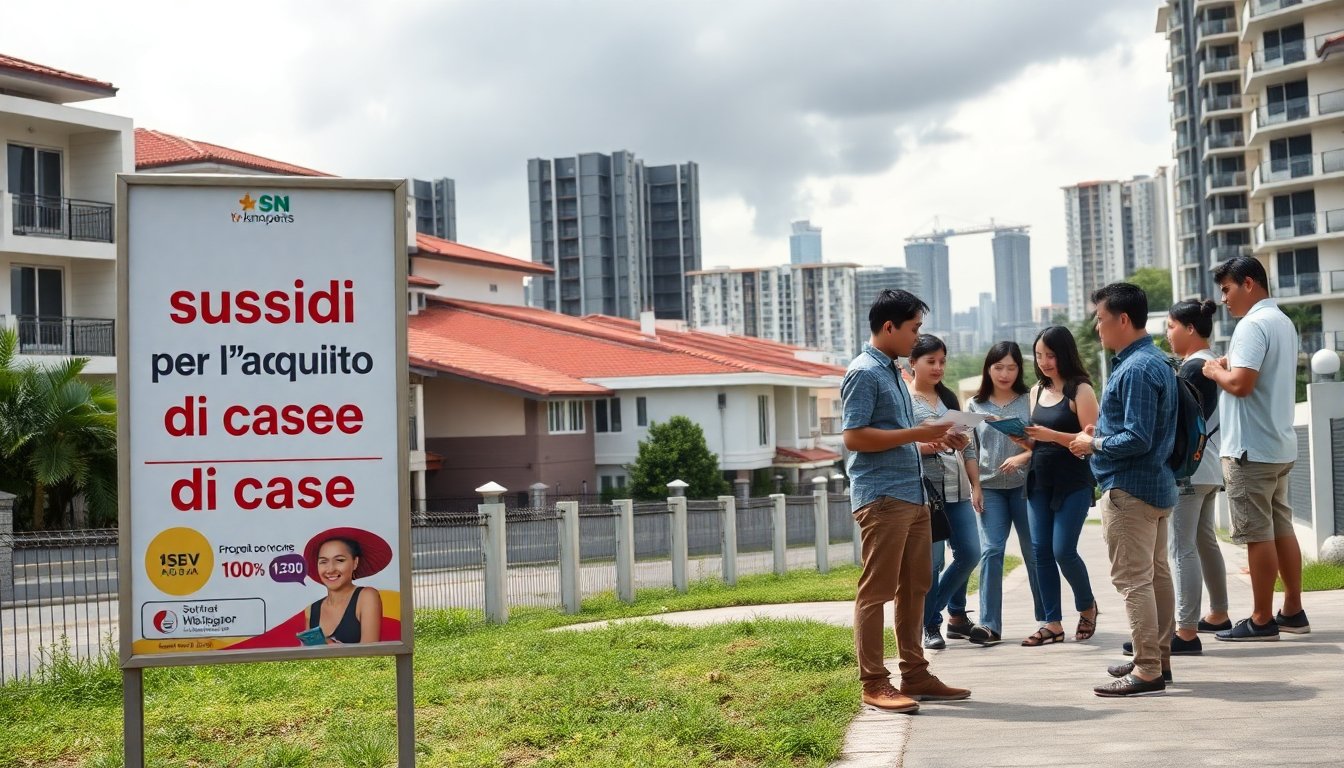Table of Contents
The real estate landscape can be vulnerable to fraudulent schemes, particularly regarding enticing offers like housing subsidies. Recently, Singapore’s police issued warnings about a scam involving a purported ‘Johor-Singapore housing subsidy’ program. This issue not only jeopardizes the financial well-being of prospective buyers but also undermines the integrity of legitimate housing initiatives.
Understanding the Scam
Victims frequently encounter misleading advertisements online, especially on social media platforms like Facebook. These ads promote the so-called ‘JBSG Housing Subsidy Programme’ or ‘Free Homes Across the Causeway,’ falsely claiming to be a collaborative effort between the Singapore and Johor governments to provide subsidized housing opportunities. This manipulation exploits individuals’ aspirations for homeownership, particularly in a market where affordability is a significant concern.
Clicking the links in these advertisements often leads victims to detailed applications requesting personal information and, in some cases, an upfront transfer of money for fictitious stamp duties. According to police reports, some victims believed they were applying for a legitimate housing subsidy, only to discover later that they had fallen for a sophisticated scam.
The Mechanics of the Deception
One particularly alarming case involved a counterfeit document featuring forged signatures from both Singapore’s and Malaysia’s prime ministers, which was used to enhance the scam’s credibility. This document claimed to outline the initiative’s goals, suggesting it was aimed at improving economic integration and living standards on both sides of the Causeway. By leveraging the reputations of high-ranking officials, scammers create an illusion of legitimacy that is challenging for the average consumer to discern.
Additionally, the fraudulent document falsely asserted that units in Johor’s Iskandar Puteri would be available at ‘welfare-subsidized rates.’ This appeal to affordability in a region with rising housing prices makes the scam particularly enticing. Such tactics underscore the importance of thorough due diligence and skepticism when confronted with offers that seem too good to be true.
Protecting Yourself from Scams
In light of these fraudulent activities, potential homebuyers must adopt a cautious approach. Always verify the legitimacy of any housing program by checking official government websites or consulting reputable real estate professionals. Be wary of unsolicited offers, especially those requesting upfront payments or personal information.
Furthermore, engaging with trusted real estate agents can provide insights into legitimate housing subsidies and investment opportunities. The mantra ‘location, location, location’ remains vital, as understanding the market landscape can help navigate both opportunities and pitfalls.
As the housing market evolves, staying informed about potential scams and understanding the economic factors at play can empower buyers to make sound investment decisions. In a landscape where the integrity of the real estate market is continually challenged, vigilance is key to safeguarding one’s financial interests.
Looking Ahead
As we move forward, it is essential to monitor emerging trends and potential vulnerabilities within the housing market. Awareness campaigns by local authorities and real estate associations will play a critical role in educating the public. By fostering a culture of skepticism and thorough investigation, we can collectively work towards minimizing the impact of these fraudulent schemes.
In conclusion, while the allure of government-backed housing subsidies can be enticing, it is crucial to approach such offers with caution. Integrating robust verification processes and adopting a proactive stance can significantly reduce the risk of falling prey to these scams, ensuring that the dream of homeownership remains attainable without the shadow of deception.


